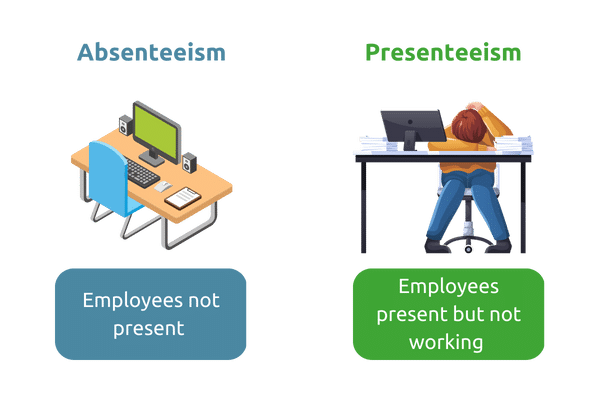Last year, many felt more stressed, depressed, and anxious, says the American Psychological Association. This rise in anxiety impacts how well people work. Amanda Augustine from TopResume notes that work anxiety often comes from stress about deadlines or big projects.
Those with anxiety may feel really nervous, have quick heartbeats, and get tired easily. These problems can make it hard to think clearly at work. They can cause bad thoughts that make it tough to focus or be creative.
At its worst, anxiety can make someone always feel on edge. It’s hard for them to focus on everyday tasks. Experts say practicing mindfulness and learning how to deal with stress is important. It helps keep your mental health in check at work.
Seventy-two percent of stressed and anxious people say it messes with their daily life. It even affects their work. Making friends at work and using nervous energy in a good way can help. Doing things like exercising for 30 minutes in the morning is also important. It helps a lot with fighting anxiety now and later on.
Increased Absenteeism and Presenteeism

Employee absence and presenteeism greatly reduce productivity. Anxiety can cause more health-related work absences. This makes it hard for employees to attend work regularly.
Impact on Regular Attendance
About 19% of workers in the U.S. say their mental health is fair or poor. This is linked to more employee absences. Workers with poor mental health often miss work unplanned about four times more than others.
This increases unplanned absences and hurts company operations. It also makes workloads heavier and costs companies a lot of money.
The Role of Presenteeism
Presenteeism happens when employees come to work but can’t work well. This may be because of stress, burnout, or anxiety. These workers are present but not fully productive.
This lower productivity harms the workplace. Depression and anxiety play a big role in presenteeism. It shows why it’s important for places to help with mental health and keep good attendance records.
Diminished Focus and Concentration
Anxiety can make it hard to focus and concentrate at work. Thoughts that intrude can make it hard to stick with tasks. Researchers found that merely walking through a doorway can make us forget things. This shows how it’s easy to lose focus.
Worry and stress can hurt our working memory, which we need to think and solve problems. For instance, a study showed anxiety could make our working memory worse. This can make it hard to focus at work and lower our productivity.
Intrusive Thoughts
Anxiety can fill our minds with unwanted thoughts, says therapy expert Hanna Stensby. This makes it tough to focus at work and finish tasks well. Mindfulness can help control these thoughts and improve focus.
Inability to Stay on Task
Stress from things like the pandemic can make it hard to keep our minds on tasks. With an average anxiety score of 5.6, work memory and focus can drop. This makes doing well at work even harder.
Increase in Errors and Mistakes
Stress in the workplace can lead to more mistakes and errors. Research has found that stress hurts our ability to think well. This makes us less creative and problem-solving becomes hard.
Studies show stress makes us less productive. When we worry, we don’t focus on details as well. This makes our work suffer. Stress can also make us forgetful and less attentive.
Constant stress causes ongoing mistakes. This happens as people start doubting themselves. As a result, productivity goes down, which affects success.
To fix these problems, we can use stress-reduction methods. Practices like meditation and deep breathing help a lot. It’s also good to manage our time well. Making the workplace supportive and balancing work with life helps reduce stress. This makes us do better at our jobs.
Impaired Decision-Making Skills
Anxiety can really mess with how you make decisions. People often doubt themselves and think too much about easy choices. This happens because of brain chemical imbalances, a lot of stress, and pressure at work. When anxiety affects decision-making, it makes it hard to choose wisely. This can make work life even more difficult.
Overthinking Simple Decisions
People with anxiety tend to overthink things at work. They aim for perfection and worry too much. This makes even small tasks feel huge. For example, many people said that pandemic stress made it tough to decide what to wear or eat. It shows how stress and anxiety can stop you from making decisions.
Difficulty Prioritizing Tasks
Anxiety makes it tough to figure out what to do first. It can lead to bad habits, trouble remembering, and less joy in achievements. These are all important for managing tasks well.
Too much work, not balancing work and life, and unclear goals make it worse. This can cause mistakes and poor task management. As a result, productivity drops, which makes stress and anxiety even worse.
Strained Workplace Relationships
When anxiety goes up in a workplace, relationships can get tough. This stress can change how people interact, hurting teamwork. It’s key to see and fix these issues to keep a good workplace vibe.
Irritability and Impatience
Anxiety often makes people irritable and impatient, notes psychologist Yvonne Thomas. These feelings can make work tense and uncomfortable. They hurt team work and could even lead to someone being left out or getting in trouble.
Social Withdrawal
Feeling anxious can also make people pull back from others. They might skip team events or work together less. This can make them feel even more alone and less part of the team. A study showed stress and work happiness don’t mix well.
Last, the average stress score among workers was 16.4. This shows stress is a problem that needs fixing. Workplaces should be places where everyone feels supported. Doing this will help everyone get along better and be happier with their jobs.
How does anxiety affect productivity?
Anxiety in the workplace can greatly change how well we work. Studies show it leads to problems in finishing tasks and being creative. It makes us less effective at our jobs.
Even easy tasks can feel hard for employees with anxiety. They make more mistakes. Anxiety costs businesses $1 trillion a year because of this. It also causes delaying work and not doing tasks well.
Feeling anxious can make us think we’re not as good as others. This thought makes stress worse. Young people, like Millennials and Gen Z, often feel this way. They struggle more at work because of it.
Anxiety affects making choices too. Anxious people overthink and can’t plan well. They set goals that are too hard to reach. This makes them avoid work and feel more anxious. Help at work can make things better.
It’s important to know how anxiety changes work. Employers can help by creating a supportive work place. This can make everyone work better and feel happier.
Lower Motivation and Engagement
Anxiety really affects how motivated employees feel and how engaged they are at work. Gallup noted in 2022 that only 15% of workers are really into their jobs. Anxiety makes people feel like they’re always in a “fight-or-flight” mode, as Lorna Borenstein, Grokker’s CEO, said. This can make folks less focused and less interested in their work. That means they’re not as motivated.
Workhuman found something interesting in 2022. Their study showed that wellness programs that recognize employees’ efforts can make a big difference. About 90% of people felt less burned out with these programs. Plus, Gallup’s research added that 89% of employees in wellness programs feel more engaged and satisfied with their jobs. So, dealing with anxiety can really help improve how happy and engaged employees are at work.
It’s tough when anxiety makes motivation dip and engagement fall. This can make the workplace feel more stressful, which only makes things worse. Zippia pointed out in 2022 that employees who really feel connected to their work are 87% less likely to quit. That’s why it’s essential to tackle anxiety. Doing so can create a better, more supportive, and productive environment for everyone.
Increased Risk of Burnout

Anxiety at work can really raise the chance of burnout. Burnout makes people feel very tired and stressed. Studies have found that workers with true burnout are 57% more likely to miss work for over two weeks because of sickness. This shows that anxiety hurts not just work performance but also employee health.
Also, 79% of U.S. workers felt stressed from their jobs in the past month. This highlights how common this problem is.
Symptoms of Burnout
Burnout shows up in different ways. Symptoms include feeling emotionally drained, losing interest, and having trouble thinking. For example, 26% of workers have felt less interested or motivated because of job stress. And 32% felt emotionally worn out. Being physically tired is also a big sign, seen in 44% of workers.
This was a 38% rise since 2019. These symptoms of burnout reveal the big effect of stress on mental health at work.
Long-Term Effects on Health
The long-lasting health impacts of burnout are scary. Employees dealing with burnout have an 84% higher chance of getting Type 2 diabetes. They’re also 40% more likely to develop high blood pressure. Plus, their risk of falling into depression is 180% higher. This proves there’s a strong link between burnout and depression.
To fight this, workplaces can offer more time off and support. Knowing the long-term health effects can help companies create a better and healthier work environment.
FAQ
How does anxiety affect regular attendance in the workplace?
Anxiety can lower how often people come to work. It weakens the body, causing people to get sick more easily. This means more days off due to illness and increased absenteeism.
What is the role of presenteeism in the context of workplace anxiety?
Presenteeism means showing up but not being fully there because of anxiety. This leads to less productivity and effectiveness. It shows how anxiety badly affects work attendance.
How do intrusive thoughts related to anxiety affect work performance?
Anxiety brings distracting thoughts that ruin focus. This makes it hard to concentrate at work. Due to this, employees can’t stay engaged, hurting their work performance.
What are the consequences of diminished focus and concentration due to anxiety in the workplace?
Anxiety makes it tough to keep focused on tasks. This badly affects work productivity. Employees find it challenging to complete tasks well.
How does anxiety cause an increase in errors and mistakes at work?
Anxiety leads to more mistakes because it disrupts focus. Stressed employees can’t do their tasks well. This reduces accuracy and lowers productivity.
In what ways does anxiety impair decision-making skills?
Anxiety affects making decisions by causing too much overthinking. It makes even simple decisions hard. This harms task management and overall job performance.
How does anxiety strain workplace relationships?
Anxiety can make people irritable and less patient. This can harm relationships at work. It may lead to less teamwork, hurting both team success and individual careers.
What are the productivity effects of anxiety in the workplace?
Anxiety at work can reduce productivity in many ways. It lowers task completion and engagement. It also affects innovation and overall efficiency.
How does anxiety influence employee motivation and engagement?
Anxiety reduces motivation and engagement by triggering fight-or-flight responses. This affects daily task involvement and job satisfaction. It then lowers morale and productivity further.
What is the increased risk of burnout due to anxiety?
Anxiety greatly raises the risk of burnout, leading to complete exhaustion. It can cause chronic pain, depression, and heart problems, affecting both productivity and health.
What are the symptoms of burnout stemming from anxiety?
Symptoms of burnout include feeling extremely tired, pain, sadness, and heart issues. These come from ongoing work stress and anxiety, hurting health and productivity.
What are the long-term health effects associated with anxiety-related burnout?
Anxiety-related burnout can cause lasting health issues like constant pain and heart disease, and also depression. Addressing anxiety is key for maintaining workplace mental health.

More Posts
8 Vital Attributes Of The Successful Entrepreneur
It takes a lot to be a successful entrepreneur. But before we look at the attributes, let’s first take a closer look at the history behind the development and meaning of the word...
10 Productivity Tips for Real Estate Agents
Real estate agents in the real estate industry must be highly productive, focusing on important activities, and applying practical real estate productivity tips to stay competitive. They should not just handle more listings...
8 Lessons from 'Eat That Frog' to Beat Procrastination
Many people struggle with procrastination, as shown in recent surveys. Brian Tracy's book, "Eat That Frog!: 21 Great Ways to Stop Procrastinating and Get More Done in Less Time," offers solutions. The 'Eat...
Not Able To Achieve Your Goals Doesn’t Make You A Failure


